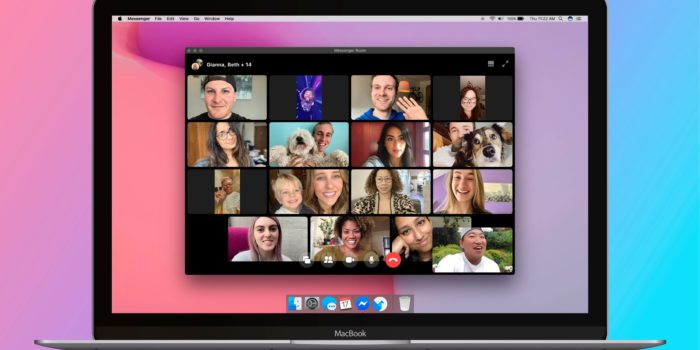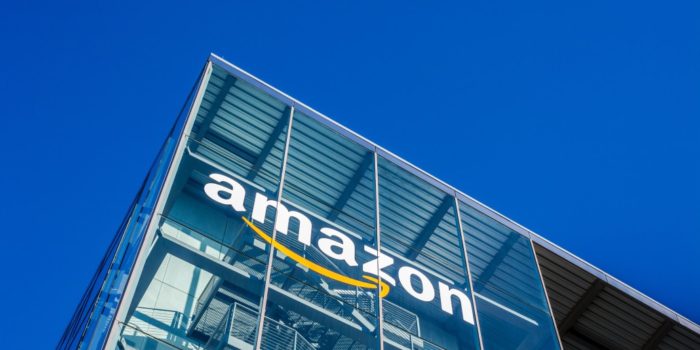Good Monday morning. It’s April 27th. Facebook and Microsoft report quarterly earnings Wednesday. Apple, Amazon, and Twitter report Thursday. That means lots of buzzworthy news will be released midweek.
Reach out to George if you need to brainstorm about your organization updating your presence online. We’ve already had these conversations with clients and friends. Now more than ever, we need to all work together and support each other.
1. News to Know Now
a. Facebook Messenger Rooms launched as a Zoom competitor. The service is free, participants do not have to have a Facebook account, and live video chats can hold up to 50 people. There’s tight integration with Facebook and Messenger. The same integration will roll out to WhatsApp and Instagram. Read the announcement or see the video.
b. Google will require all advertisers to identity themselves at an organization and personal level. Search Engine Journal’s (and former Silver Beacon consultant) Susan Wenograd broke the news Thursday. The change will include all advertising categories, not just the political and advocacy categories most platforms now require. Ads will include a message identifying who has paid for the advertising. Read her article here to also see an animation showing the new function.
c. Amazon has been accused of using data from third party sellers to create their own private label products to compete with those sellers. The charges were made in a blockbuster Wall Street Journal article Friday by reporter Dana Mattioli who wrote that she interviewed twenty former Amazon employees, including one who supplied proof. Amazon’s private label business now generates more than $1.5 billion in annual revenue. An Amazon executive testified to Congress last year that the company does not use this data. (Read the story here — paywall)
Last week’s One Click Poll results
75% of you said last week that your workplace was opening at about the right pace. That’s great to hear!
This week, tell us about lunch with one click at the bottom of this week’s newsletter.
2. COVID-19 Online Resources and News
Trackers
Covidly — my go-to.
Our World in Data — non profit based at Oxford.
Factbase — has metro area level detail, not just state or county.
RT live — shows average number of people infecting others by state.
Tech News
YouTube bans ‘medically unsubstantiated content
Software monitoring remote employees is seeing a sales boom
3D Printable Ventilators Built for Coronavirus
Boston Dynamics Robot Carrying Equipment to Patient Triage Area
Yes You Can Print Your Face on a Mask
People of the Pandemic Game Simulates Your Town’s Response
3. Search Engine Optimization News
Google Shopping is once again free for merchants. Google began charging for the service way back in 2012 after a successful 10 year run as a price comparison service once known as Froogle and then Google Product Search before becoming Google Shopping.
Google Product feeds were once as ubiquitous at retailers as Amazon product feeds are now. As Amazon gained well over one-third of the U.S. ecommerce market, Google held the line on its own shopping service until online purchasing exploded due to the COVID-19 pandemic. Google will also resume its partnership with PayPal, a new agreement that was also announced last week.
Amazon and Google will continue to sell advertising in their ecommerce products, but in Google’s case, the listing is now free again. You can read their announcement here.
Google also announced that it will display a new message if its search engine doesn’t find what it calls a “great match”. A new message will appear that suggests alternative searches. The new feature may help Google lead you to very topical information about the COVID-19 pandemic, suggests Search Engine Land’s Barry Schwartz.
Bing still receives more than 500 million U.S. searches each month and 12 billion worldwide. That pales in comparison with Google but is still a lot of volume. That’s why search watchers were shocked last week to learn that a Bing feature that showed popular related results from websites included inappropriate stock images with NSFW names. Microsoft and Shutterstock confirmed that there was no child pornography as some of the titles suggested. Ars Technica’s Timothy Lee broke the story that you can read here.
4. Also in the Spotlight — YouTube’s First Video Turns 15
Jawed Karim visited the San Diego Zoo and made an 18 second video outside the elephant area. Jawed, only 25, was an early employee at PayPal and created YouTube with two of his PayPal co-workers. One year later, the trio sold YouTube to Google for $1.65 billion. Today, YouTube generates $15 billion in annual revenue so that was a good deal for Google.
You can see Jawed’s first video here and read more about the founders at Cnet.
5. Following Up: Dropbox Hired Hackers in 2018 to Crack Zoom
A startling New York Times expose describes Dropbox hiring hackers more than one year ago to find vulnerabilities in the software code of Zoom and other products that its employees often used. Dropbox then presented the results to Zoom and its executives were troubled when the company took more than three months to fix them. Dropbox was a pre-IPO investor in Zoom and one of its directors led a $100 million investment in the company.
Read “Zoom’s Security Woes Were No Secret…”
6. Debugging: Jacksonville Beach Photos Are Real
A Getty photographer’s photo of people walking on a Florida beach without practicing social distancing was edited into a second story about Los Angeles. The doctored document was then circulated on Facebook with messages suggesting that media images were doctored and that the COVID-19 outbreak was not as real as news reports suggest.
Poynter debunks the conspiracy theory with nine sources at this link.
7. ProTip: Zoom Real-Time Meeting Transcription
In more positive Zoom news, the service now has integrated with Otter.ai, a real-time chat transcription service that allows participants to view a live text log of the meeting.
Tom’s Guide describes the service and provides details.
8. Great Data: NYC Sidewalk Widths
This map uses the NYC Sidewalk database to map the entire city’s grid of sidewalks and shows which are wide enough to allow proper social distancing.
See the amazing visualization here.
9. Screening Room: Every COVID-19 Commercial Is Exactly the Same
10. Coffee Break: Sharks!
I didn’t expect to spend time with Brunswick last week, but I found it fascinating that he was near the Georgia coast in February 2019, went up to Nova Scotia, looped in to New Brunswick for a while, and then came all the way back down, before swinging around Florida and visiting its west coast.
You see, Brunswick is an eight-and-a-half foot white shark that weighs more than 430 pounds. Like the sharks and other critters tagged at Ocearch, his movements are dutifully plotted on an aquatic map.
Brunswick was hanging out off the coast of Vero Beach on Thursday evening at 7:43. Seeing how far some of these creatures travel and where is fun.
Visit the Ocearch tracker here.
Here are three ways that we can help you:
1. Get a free SEO audit on our website.
2 Have a simple, fact-based question about digital marketing? Reply & ask George for free.
3. If your organization needs help with search, social media, or advertising, have a look at what we do.
See you Monday.



